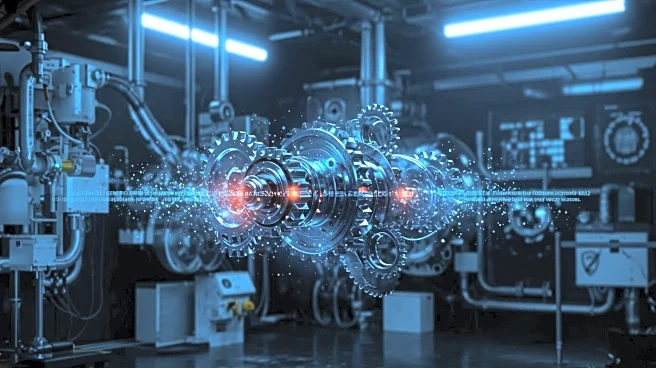What's Happening?
Recent advancements in quantum memory technology have been highlighted through the development of mechanical quantum memory systems for microwave photons. This innovation involves the use of superconducting qubits and nanomechanical resonators, which are crucial for storing quantum information. The research focuses on achieving high coherence and low loss in phonon-trapping cryogenic acoustic cavities, which are essential for future quantum computing applications. The integration of these systems with circuit quantum electrodynamics is a significant step forward in the field, promising enhanced performance and reliability in quantum computing hardware.
Why It's Important?
The development of mechanical quantum memory systems is pivotal for the advancement of quantum computing, which has the potential to revolutionize industries by solving complex problems beyond the capabilities of classical computers. This technology could lead to breakthroughs in secure communication, data processing, and artificial intelligence. The ability to store and manipulate quantum information with high precision and low loss is crucial for the practical implementation of quantum computing, which could significantly impact sectors such as cybersecurity, pharmaceuticals, and financial modeling.
What's Next?
Future research will likely focus on further improving the coherence and integration of quantum memory systems with existing technologies. Efforts to optimize materials and circuit design are expected to continue, aiming to achieve near-millisecond energy relaxation and dephasing times for superconducting qubits. The ongoing development of hybrid quantum systems and fault-tolerant quantum computing architectures will be critical in overcoming current limitations and achieving scalable quantum computing solutions.









